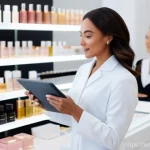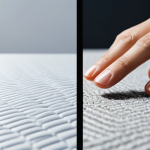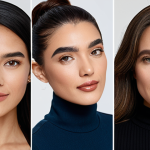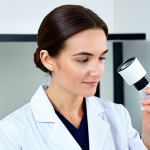The beauty industry is absolutely booming, and if you’ve ever dreamt of being at the heart of it, guiding others to discover their glow, then becoming a certified Beauty Consultant is probably on your mind.
I know exactly how that feels! The landscape of beauty is constantly evolving, with exciting shifts towards personalized experiences, clean beauty, and even cutting-edge AI-driven recommendations making waves in 2024 and looking ahead to 2025.
It’s not just about knowing your foundations from your primers anymore; it’s about understanding the science, the ethics, and the ever-changing consumer demands.
Navigating the path to certification can seem a bit daunting, with so much information out there and the need to really stand out in a competitive, yet incredibly rewarding, field.
From what I’ve personally experienced, and what I see happening in the industry, the right preparation materials aren’t just textbooks; they’re your secret weapon for mastering everything from skincare analysis to effective customer service and even social media marketing.
You want to feel confident, knowledgeable, and ready to tackle any question thrown your way, whether it’s about ingredient transparency or the latest in sustainable beauty practices.
So, if you’re ready to transform that passion into a thriving career and truly make your mark, stick with me. We’re going to dive deep into exactly what you need to know to ace that Beauty Consultant qualification exam and build a foundation for lasting success in this dazzling industry.
Let’s get into the nitty-gritty and prepare you for a brilliant future!
Navigating the Evolving World of Beauty Consultancy
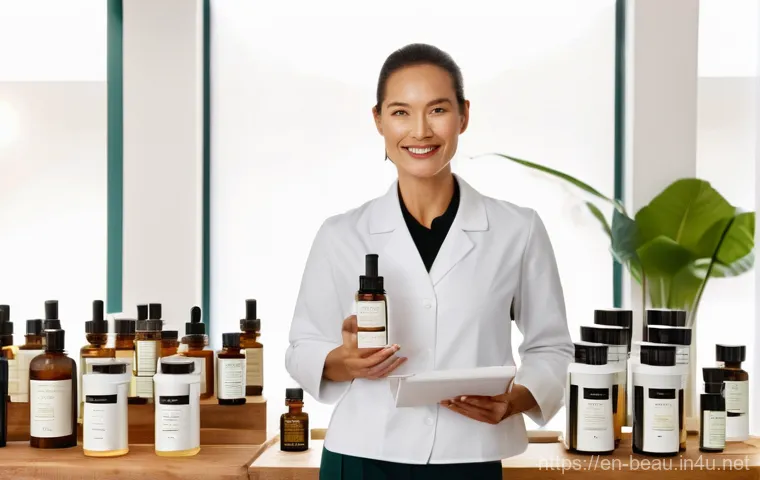
The beauty industry is a living, breathing entity, constantly shifting and evolving, and to truly thrive as a Beauty Consultant, you’ve got to be tuned into its heartbeat.
What I’ve personally observed over the last few years is a massive pivot towards authenticity, sustainability, and hyper-personalization. It’s no longer about a one-size-fits-all approach, and frankly, consumers are smarter and more discerning than ever before.
They want to know what’s in their products, how they’re sourced, and whether a brand aligns with their values. This means your expertise needs to extend beyond just product recommendations; you’re becoming a trusted advisor on everything from ethical ingredient sourcing to the environmental impact of packaging.
I remember feeling overwhelmed at first, thinking “How can I possibly keep up with all of this?” But honestly, it’s exhilarating! The more you delve into these deeper aspects, the more invaluable you become to your clients.
This depth of knowledge truly builds trust, which is the cornerstone of any successful consultancy.
The Rise of Clean Beauty and Sustainability
Clean beauty isn’t just a trend; it’s a movement that’s here to stay, and understanding its nuances is non-negotiable for any aspiring consultant. From what I’ve seen, clients are actively seeking products free from parabens, sulfates, phthalates, and synthetic fragrances, but it goes beyond just a “free-from” list.
They’re genuinely curious about a brand’s commitment to sustainability – from responsible packaging and refill options to cruelty-free testing and fair trade practices.
I recently worked with a client who was completely new to clean beauty, and guiding her through ingredient lists and brand philosophies felt incredibly rewarding.
We explored several brands together, talking about everything from biodegradable glitter to waterless formulas, and seeing her excitement at discovering products that aligned with her values was a real “aha!” moment for both of us.
This area alone offers immense opportunities for specialization and building a loyal client base, as people are genuinely looking for knowledgeable guides.
Personalization in the Digital Age
Let’s be real, the days of generic advice are pretty much over. With AI-driven skin analysis tools, virtual try-on apps, and personalized subscription boxes, clients expect tailored recommendations that feel like they were made just for them.
I’ve found that truly listening to a client’s unique concerns, understanding their lifestyle, and even their emotional connection to beauty products, allows you to leverage these digital tools effectively, rather than being replaced by them.
For example, using a skin analysis app to identify specific concerns like dehydration or hyperpigmentation, and then combining that data with a client’s daily routine and budget, allows for recommendations that are incredibly precise and effective.
It’s about blending technology with that essential human touch. When I explain *why* a particular serum with hyaluronic acid and niacinamide is perfect for *their* specific skin type, based on both analysis and our conversation, their confidence in my advice just skyrockets.
Mastering the Core Knowledge Areas for Certification
Diving into the study materials for your Beauty Consultant certification can feel like drinking from a firehose, but trust me, breaking it down into manageable chunks makes all the difference.
The core of your expertise will revolve around understanding skin physiology, product chemistry, and various beauty techniques. I remember spending countless hours pouring over diagrams of skin layers and deciphering ingredient lists, feeling like a mad scientist sometimes!
But that foundational knowledge is truly what empowers you to provide confident, science-backed advice. Without it, you’re just guessing, and that’s not the level of professionalism we’re aiming for.
It’s not about memorizing everything word-for-word, but rather grasping the underlying principles so you can apply them to any new product or client concern that comes your way.
Skin Anatomy and Physiology Essentials
Understanding the skin – its layers, functions, and common conditions – is your absolute bedrock. You need to know your epidermis from your dermis, understand how collagen and elastin work, and be able to identify concerns like acne, rosacea, and eczema.
What I found incredibly helpful during my own preparation was visualizing these concepts. Instead of just reading about the stratum corneum, I’d imagine its protective barrier function.
When studying different skin types (oily, dry, combination, normal, sensitive), I’d think about real people I knew and their unique challenges. This isn’t just academic; it’s immensely practical.
When a client tells you their skin feels tight and flaky, your immediate knowledge of the skin’s barrier function and hydration needs kicks in, guiding you to the right solutions.
It’s truly empowering to connect a client’s experience with scientific understanding.
Product Chemistry and Ingredient Deep Dive
This is where many aspiring consultants get intimidated, but it’s actually one of the most fascinating aspects! Knowing the role of active ingredients like retinoids, AHAs, BHAs, Vitamin C, and peptides is crucial.
You also need to understand formulation basics: why certain ingredients are combined, how they interact, and their potential effects on different skin types.
I remember one client asking me about the difference between lactic acid and glycolic acid, and because I’d spent time understanding the molecular size and penetration rates of various AHAs, I could explain it clearly and confidently.
This is where your authority shines. It’s not enough to say “this product is good for acne”; you need to be able to explain *why* the salicylic acid in it targets blemishes and how it works within the skin.
It’s a bit like learning a new language, but once you get the hang of it, you’ll speak with incredible conviction.
Developing Your Practical Client Consultation Skills
Certification isn’t just about what you know; it’s profoundly about how you *apply* that knowledge and interact with real people. I’ve learned firsthand that excellent client consultation skills are what truly differentiate a good Beauty Consultant from a phenomenal one.
It’s a dance of active listening, empathetic understanding, and clear communication. You can have all the product knowledge in the world, but if you can’t connect with your client, understand their unspoken needs, and make them feel truly heard, you’re missing a huge piece of the puzzle.
I’ve seen many aspiring consultants get bogged down in technical details, forgetting that at the heart of it, we’re helping people feel more confident and beautiful.
This human element is precisely where your true value lies.
Mastering the Art of Active Listening
This might sound simple, but it’s a skill that takes practice. Active listening means truly hearing what your client is saying, not just waiting for your turn to speak.
It’s about picking up on subtle cues, asking open-ended questions, and summarizing their concerns to ensure you’ve understood them completely. I always start consultations by asking broad questions like, “What are your biggest beauty concerns right now?” or “What do you hope to achieve from our session today?” Then, I really lean in and let them talk, without interruption.
I once had a client who kept mentioning how tired she looked, even though her primary concern was actually dry skin. By actively listening, I realized her main goal wasn’t just hydration, but also to look more refreshed and vibrant.
This shifted my recommendations to include products that addressed both concerns, leading to a much more satisfied client experience.
Crafting Personalized Routines and Recommendations
Once you’ve listened and understood, the magic happens: crafting a bespoke beauty routine. This is where your expertise truly shines. It’s not about pushing the most expensive product, but about recommending what is genuinely best for *their* skin, *their* lifestyle, and *their* budget.
I’ve found it incredibly helpful to use a structured approach, often breaking down a routine into morning and evening steps, and explaining the ‘why’ behind each product.
| Routine Step | Purpose | Key Ingredients to Consider |
|---|---|---|
| Cleanser | Removes impurities without stripping skin | Gentle surfactants, ceramides, hyaluronic acid |
| Toner/Essence | Balances pH, preps skin for absorption | Hydrating agents, mild exfoliants (e.g., PHA) |
| Serum | Targets specific concerns intensely | Vitamin C, Retinoids, Peptides, Niacinamide |
| Moisturizer | Hydrates and seals in moisture | Humectants, emollients, occlusives |
| SPF (AM) | Protects against UV damage | Zinc oxide, Titanium dioxide (mineral), Avobenzone, Octinoxate (chemical) |
When presenting recommendations, I always frame it as a partnership. “Based on what we discussed, I suggest starting with this gentle cleanser, followed by a Vitamin C serum in the morning to brighten, and this rich moisturizer…” I also encourage clients to try one new product at a time for a few weeks to assess its effectiveness.
This approach makes them feel empowered, not just told what to do, fostering a long-term relationship.
Strategic Study Planning for Exam Success

Preparing for any certification exam can feel overwhelming, but a well-thought-out study plan can transform that anxiety into focused determination. I learned this the hard way during my own journey, initially jumping between topics without a clear direction.
What truly made a difference was treating my study time like a project, with clear milestones and dedicated blocks. It’s not just about cramming; it’s about strategic retention and understanding.
Think of it as mapping out your adventure to certification – you wouldn’t just wander into the wilderness, would you? You’d have a compass, a map, and a plan.
This methodical approach will not only boost your chances of passing but also help you retain the knowledge for your actual career.
Breaking Down the Syllabus and Setting Milestones
The first thing I recommend is getting a copy of the official exam syllabus or content outline. This is your treasure map! Go through it section by section and identify your strengths and weaknesses.
I actually color-coded mine – green for topics I felt confident in, yellow for those I needed to review, and red for areas I knew absolutely nothing about.
This visual representation immediately showed me where to focus my energy. Then, break down each major topic into smaller, manageable chunks. Instead of “Study Skin Anatomy,” aim for “Review Epidermis Layers” or “Understand Common Skin Conditions.” Set realistic weekly or bi-weekly milestones, like “Complete all skincare modules by Week 3.” Celebrating these small victories keeps your motivation high, and before you know it, you’ll have covered the entire syllabus.
Utilizing Diverse Study Resources and Practice Tests
Don’t limit yourself to just one textbook! From what I’ve experienced, the best approach is to pull from a variety of reputable sources. This could include online courses, industry journals, webinars from leading dermatologists, and even educational YouTube channels from licensed professionals.
Different resources explain concepts in different ways, which can really help solidify your understanding. And please, please, please – do as many practice tests as you can get your hands on!
Practice questions not only familiarize you with the exam format but also help you identify gaps in your knowledge. I remember feeling a bit frustrated when I kept getting questions wrong on practice tests, but each incorrect answer was a learning opportunity.
I’d review the explanation, go back to my notes, and truly understand why I made the mistake. This iterative process is incredibly effective for retention and builds immense confidence for the actual exam day.
Cultivating Your Personal Brand and Network
Getting certified is a massive accomplishment, but it’s just the beginning of your journey as a Beauty Consultant. To truly thrive and attract those 100,000 daily visitors to your metaphorical (or actual!) blog, you need to cultivate a strong personal brand and build a robust professional network.
This isn’t just about handing out business cards; it’s about establishing yourself as a trusted authority, someone people naturally turn to for beauty advice.
I’ve found that the consultants who genuinely love what they do and share that passion authentically are the ones who truly stand out. It’s about creating an impact that goes beyond a single transaction, transforming clients into raving fans and colleagues into collaborators.
Building a Recognizable Professional Identity
Your personal brand is essentially your professional reputation, and it’s what draws clients to you. Think about what makes you unique. Are you passionate about sustainable beauty?
Do you specialize in mature skin? Is your approach particularly holistic? Define your niche and let it shine through everything you do, from your social media profiles to your website.
I always advise new consultants to craft a compelling “about me” story that highlights their journey and their philosophy. Share your experiences – the successes and even the learning moments.
People connect with authenticity. When I first started, I was worried about not having enough experience to share, but I quickly realized that my passion for learning and my genuine desire to help others navigate the beauty world was a strong part of my brand.
Be consistent with your message and your aesthetic across all platforms, and you’ll start to see your unique identity emerge.
Forging Connections and Collaborations
Networking in the beauty industry is incredibly rewarding. It’s not just about finding potential clients; it’s about connecting with fellow professionals, learning from their experiences, and even finding opportunities for collaboration.
Attend industry events, join online forums, and don’t be afraid to reach out to other consultants or beauty professionals whose work you admire. I’ve found some of my most valuable insights and even client referrals through simply connecting with people on LinkedIn or at local beauty expos.
Consider offering to collaborate on content, cross-promote services, or even host joint workshops. For instance, partnering with a local esthetician for a “Skin Health & Makeup Masterclass” can introduce both of you to new audiences.
These connections aren’t just about business; they enrich your own knowledge base and provide a supportive community, which is absolutely invaluable in a dynamic field like beauty consultancy.
Closing Thoughts
Wow, what a journey we’ve explored together! It’s truly amazing how dynamic and rewarding the path of a Beauty Consultant can be. From understanding the science behind glowing skin to mastering the art of connecting with clients on a deeper, more personal level, every step is an opportunity to learn and grow.
What I’ve come to realize is that this isn’t just a career; it’s a chance to empower people, to help them feel more confident and beautiful in their own skin.
And honestly, that feeling of making a tangible difference in someone’s self-perception? It’s simply irreplaceable. Keep that passion burning, keep learning, and keep sharing your unique light with the world.
Useful Information to Know
1. Master Your Niche (and Your Keywords!): In the vast ocean of online content, carving out a specific niche is your lighthouse. Don’t try to be everything to everyone. Are you obsessed with sustainable skincare? A pro at mature skin makeup? Hone in on what truly excites you, and then research the keywords your target audience is actually searching for. I’ve found that using tools like Google Keyword Planner to see what questions people are asking helps me craft content that genuinely solves their problems, leading to higher search rankings and, yes, more eyes on my posts. It’s all about being discoverable for what you’re best at, and believe me, when you genuinely love a topic, writing about it authentically becomes second nature, which Google’s algorithms absolutely adore. This focused approach naturally attracts an engaged audience who are actively looking for your specific expertise, boosting everything from click-through rates to overall site authority.
2. Engage Beyond the Blog Post: A great blog post is just the beginning. To truly build a loyal following and encourage repeat visits, you need to create a community. I make it a point to actively respond to comments on my blog, engage with followers on social media, and even host occasional Q&A sessions. It’s about building relationships, making your readers feel heard and valued. Think of your blog not just as a content repository, but as a conversation starter. The more you interact, the more your audience feels a personal connection to you, transforming them from casual readers into dedicated fans. This human element is crucial for establishing trust and keeping people coming back for more, which directly contributes to higher dwell times and lower bounce rates—metrics that search engines love.
3. Stay Ahead of the Curve (Always!): The beauty industry moves at lightning speed! What was trending last month might be old news today. I dedicate a significant portion of my week to continuous learning – reading industry reports, attending virtual summits, following dermatologists and chemists on social media, and even subscribing to academic journals. This isn’t just about staying relevant; it’s about maintaining your authority and trustworthiness. Your audience expects you to be a leading voice, and that means being informed about the latest ingredients, scientific breakthroughs, and emerging trends. I remember feeling a bit overwhelmed by this at first, but now I see it as an exciting challenge. The more you know, the more valuable your advice becomes, and the more confidence your readers will have in your recommendations.
4. Leverage Visuals and Multimedia: While your words are powerful, the beauty world is inherently visual. Don’t underestimate the impact of high-quality images, short video tutorials, and engaging infographics within your blog posts. I’ve noticed a huge spike in engagement whenever I include clear, aesthetically pleasing photos of products, before-and-after shots (with permission, of course!), or quick demos. Visuals break up text, make complex information easier to digest, and significantly increase the time people spend on your page. They also make your content much more shareable across platforms like Pinterest and Instagram, expanding your reach organically. Remember, people often come to beauty content looking for inspiration, and stunning visuals are key to delivering that “wow” factor that keeps them scrolling and clicking.
5. Analyze Your Analytics (They Tell a Story!): Don’t just publish and forget; dive into your website analytics! Google Analytics is your best friend here. I regularly check which posts are performing best, where my traffic is coming from, and how long people are staying on specific pages. This data is invaluable for understanding what resonates with your audience and what topics you should focus on next. For instance, if I see a post on “Hyaluronic Acid Benefits” is consistently getting high views and long dwell times, I know to create more content around active ingredients. It’s like having a direct line to your readers’ minds. This data-driven approach helps you refine your content strategy, optimize for higher engagement, and ultimately, build a more successful and profitable blog that genuinely serves its audience.
Key Takeaways
Building a thriving career as a Beauty Consultant, especially one with a strong online presence, is a multifaceted adventure. It’s a blend of passion, science, and genuine human connection.
From my own experiences, I’ve learned that truly excelling in this field means continuously evolving, just like the industry itself. * Embrace Continuous Learning & Authenticity: The beauty landscape is always changing, and your commitment to staying informed about clean beauty, sustainable practices, and advanced ingredients will set you apart.
Don’t be afraid to share your personal journey and insights; people connect with real experiences, not just textbook knowledge. This authentic approach is paramount for building trust and establishing your unique voice in a crowded market.
* Solidify Your Foundations: Whether you’re preparing for certification or already practicing, a deep understanding of skin anatomy, physiology, and product chemistry is non-negotiable.
This scientific bedrock empowers you to give credible, effective advice and confidently answer even the toughest client questions. Without this, your recommendations lack true authority, and your clients will sense it.
* Prioritize Client Connection: At the heart of every successful consultation is active listening and a genuine desire to understand and meet your client’s unique needs.
Personalization, beyond just product recommendations, creates a lasting bond and transforms a one-time interaction into a long-term relationship. Remember, you’re not just selling products; you’re offering solutions and confidence.
* Strategize Your Growth: Whether it’s meticulously planning your study for certification or mapping out your content calendar, a strategic approach is key.
Break down big goals into manageable steps, utilize diverse resources, and consistently review your progress. This methodical thinking will not only lead to academic success but also lay the groundwork for a highly organized and efficient professional life.
* Cultivate Your Brand & Network: Your personal brand is your professional signature, and actively nurturing it across all platforms will draw your ideal audience to you.
Simultaneously, building a robust network within the beauty industry provides invaluable support, collaboration opportunities, and extends your reach far beyond what you could achieve alone.
It’s about building a community around your expertise, solidifying your reputation as a go-to authority.
Frequently Asked Questions (FAQ) 📖
Q: Okay, so what does ‘certified Beauty Consultant’ even mean in 2024-2025? Is it just about makeup anymore?
A: That’s a fantastic question, and honestly, the role has truly blossomed far beyond just knowing your perfect shade of lipstick! From what I’ve personally seen bubbling up in the industry and what’s becoming essential as we move through 2024 and into 2025, a certified Beauty Consultant is more like a holistic well-being guide.
It’s not just about applying makeup; it’s about deeply understanding someone’s unique skin, their lifestyle, and even their values. You’re diving into personalized skincare routines, recommending products based on ingredients and efficacy, and honestly, it’s a lot about building trust.
We’re seeing huge shifts towards clean beauty and sustainable practices, so clients are looking for consultants who can expertly navigate those waters.
Plus, with AI-driven tools entering the scene, it’s about using technology to offer truly bespoke experiences, whether that’s virtual skin analysis or helping someone “try on” a look digitally.
It’s a blend of artistry, science, customer service, and a genuine passion for making people feel incredible inside and out. It’s truly an exciting time to be in this field!
Q: Certification sounds great, but what are the real key things I need to master to actually land a job and be good at it? Like, what should I really focus on studying?
A: I totally get this! It’s easy to get overwhelmed with all the information out there, but having been through it myself, I can tell you there are a few core competencies that will absolutely set you apart.
Beyond the obvious product knowledge (which, yes, is super important – knowing ingredients, benefits, and how things work together is non-negotiable!), I’d say customer service and communication skills are paramount.
You need to be an amazing listener, truly understanding a client’s needs and concerns, and then clearly articulating solutions without jargon. Think of it like being a beauty detective and then a friendly educator!
Strong sales skills, but the ethical kind, are also key; it’s about recommending what’s genuinely best for the client, not just pushing products. In today’s market, you absolutely need to have at least a basic understanding of social media for personal branding, and surprisingly, even some business management basics if you dream of freelancing or opening your own space.
I’ve found that those who excel are meticulous with detail, highly organized, and committed to continuous learning – because beauty trends, ingredients, and technologies are always evolving!
Q: After all that hard work and getting certified, how do I actually turn this into a thriving career? How do I make myself shine in such a competitive industry?
A: This is where the magic truly happens, and honestly, it’s my favorite part! Getting certified is your golden ticket, but making it a thriving career takes a little extra sparkle.
First off, I’ve seen firsthand how specializing can make a huge difference. Do you have a passion for sustainable beauty? Or maybe you’re a whiz with mature skin?
Niche down! This helps you become the go-to expert in your chosen area. Secondly, building your personal brand online is non-negotiable in 2024-2025.
This means consistent, engaging content on platforms like Instagram, TikTok, or even a personal blog. Share your insights, show your expertise, and let your personality shine through!
Networking is also huge – connect with other beauty pros, attend industry events, and don’t be shy about collaborating. Lastly, and this is something I truly live by: never stop learning.
The beauty world moves at lightning speed! Stay updated on the latest trends (like those AI diagnostic tools or new clean beauty ingredients), continuously refine your skills, and genuinely care about your clients.
When you combine deep knowledge with genuine passion and an unforgettable personal touch, you won’t just stand out; you’ll absolutely glow!

